All successful entrepreneurs have risen through adversity and perseverance. Before becoming established, all firms must go through the starting phase. They have to start somewhere, too. Ask any ambitious entrepreneur, and they’ll tell you about the exhausting, persistent process that has kept them awake countless nights.
It’s fascinating to learn about the beginnings of significant corporations that have become household brands. Others of them came from humble beginnings, and some of the well-known firms have founders with fascinating backstories.
In this interview series, we spoke with 53 business owners and executives in the United States to learn how some of the country’s most successful entrepreneurs and leaders faced adversity and triumphed. We have also gone over several strategies that you can utilize to overcome any obstacles that come your way.
INTERVIEW HOST
The host of this interview was Jed Morley. Jed Morley is the CEO of a leading payment processing service provider called PlatPay.

Table of Contents
The question we asked:

Kristina Alexandra Kovalyuk
The difficulties with becoming CEO are many and it is a journey not meant for all. As Elon Musk said, “being an entrepreneur is like eating glass and looking into the abyss”. Some of the challenges I faced in becoming a CEO have been:
- Leaving a comfortable well paying job on Wall Street that provided a salary, benefits and security and going into the unknown. Not knowing where or when my next ‘paycheck’ was going to come from.
- Marketing. Knowing what my product and service is, is one thing, but how to get it to my target audience, getting it on their radar, marketing, pitching, doing PR.
- Establishing corporate governance, accounting, operations, structure, CRM.
- Hiring talent. Probably one of the most challenging parts of being an entrepreneur is finding talent and then being able to give them the freedom to do their work and not micro-manage and let go. This was a very tough part as an entrepreneur wants to instinctively do everything themselves.
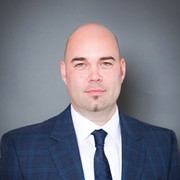
Matt Post
Whenever I am confronted with difficulties and challenges as a leader, I always remind myself that great leadership is forged in the fire of adversity. Yes, difficulties can sometimes discourage you from pursuing your goals further, but if you adopt a growth mindset around them, you will learn to embrace each challenge as an opportunity to grow. That is what I have continuously tried to do throughout my career as a serial entrepreneur.

Chris M. Walker
The hardest part for me was learning to lean on other people.
I waited literal years too long for my first hire and once I did it changed the game for me overnight and let me take things to the next level… but I still didn’t learn.
After that hire I was able to add more offers, grow more products and help more people… until I plateaued again, and had to be convinced to hire further.
This was a vicious cycle that I eventually broke out of long after I should have. I have now finally learned that not only can I not do everything myself, but I should do very few things myself so the things that I do, do get me at my best.
Your business is your creation and it is normal to think no one can do things up to your standard, but you can’t do it this way for long if you have any level of success, it will lower the quality of your work, make you hate what you do, and prevent your from rowing.
I am fortunate now to have a great team that handles most everything for me to the point that I joke that I am just the face on the sign like Colonel Sanders… but it took me a long time to get there, and if I hadn’t struggled with this I’d be years further along than I am now.

Brett Larkin
One of the biggest challenges I faced on my entrepreneurial journey was prioritizing work-life balance. When you start a business, it is hard to focus on anything else, but this hyperfocus can actually cause a lot of fatigue and stress that can lead to burnout.
The key to being a well-rounded leader and business person is to figure out how you can balance your professional life with your personal life. External factors, like friends, family and your social life can actually benefit you hugely by providing comfort and support on your entrepreneurial journey!
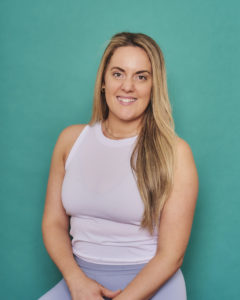
Kate Lombardo
The journey to becoming an entrepreneur, also a Yoga Director at YogaRenew Teacher Training is one that is filled with constant challenges. While I’ve faced all the typical ones– from conquering self-doubt to navigating bankruptcy as a result of the pandemic– I think the biggest difficulty I’ve faced is learning to accept that things are always going to change.
When it comes to being an entrepreneur, you have to be open to always learning and growing and learning how to pivot as things around you change. Every time you think you’ve finally got things figured out, something else shifts in the world and you have to adjust in order to stay relevant.
For example, right before the pandemic began I finally felt like my yoga studio was in a good place and then we had to close and learn how to teach online. Thankfully by then, I had already gotten comfortable with needing to always be able to pivot, but that took a long time for me to learn how to accept that I’ll never be “done” when it comes to being an entrepreneur.
The exciting thing about that is that it means you can never truly fail. You just need to keep trying until you find the way that works.
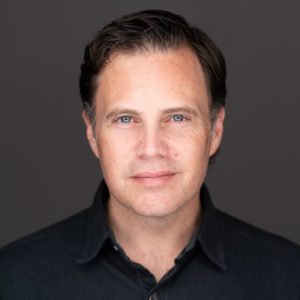
Adam Rossi
Many entrepreneurs have similar stories on their way to the top. Everyone has problems they face on a daily basis, but what separates those who are good from those who are great is how they deal with the adversity that appears in everyone’s lives.
I’m no different. I’ve faced the same issues, dealt with the same issues of people not believing in me or in my journey toward success. The only difference between me and those who haven’t reached their success yet? I didn’t let any of those problems stop me. That’s the big secret to being a successful entrepreneur. Don’t stop.
Don’t let anything get in your way. You’re going to have problems. You’re going to have haters. It’s inevitable. Don’t let it stop you. Let it fuel your fire. Prove them wrong. Prove everyone wrong.

Devon Fata
The core of my journey to becoming a CEO was the slow realization that it was the only way I would be able to work in a way that fit my vision and values.
I started in the web design business right out of college as a salaried employee at a big design firm. While I learned a lot about the industry and built my skills, I found that there were a lot of things I wanted to do differently, but lacked the power to change.
This led me to becoming a freelancer. This gave me a greater degree of control over my work and the freedom to find clients for myself and start acting a bit like a business instead of an employee, but I was still limited both by the clients I could find and by my inability to bring together teams for bigger projects. That’s when I launched Pixoul. Now I can finally implement my vision on entire projects, from start to finish.

Dain Dunston
One of the biggest difficulties I faced during my career journey was failing as a leader at a tech company, where I lasted only four months. It shook me to my core. The worst part was I knew in my bones it was a bad decision before I accepted the job, and yet I went ahead with it anyway.
I came into the role feeling so uncomfortable for so many reasons that I surely would have come across as inauthentic and even just a little weird. I left feeling crushed, humiliated, and defeated. I had no idea where to go next, yet I was determined to find the answer to one burning question:
How had I become so lost? The experience fired me up to find out why I had made such bad decisions and how I could rewire my mind to be the awesome, inspiring human being I always wanted to be (but secretly doubted I was worthy of becoming). Who among us hasn’t found ourselves in the wrong job, or feeling that we didn’t belong, or wishing we could stop making decisions that took us into dead-end career moves?
My failed job experience allowed me to look inward, and over time, with daily personal practice, I rewired my mind to be the leader I know I could be. Along the way, I helped many other leaders do the same, from CEOs to those just starting out in their careers. Nothing I’m doing today would be happening if I hadn’t gone through that and a few related experiences. All experience happens for one purpose: to increase our awareness.

Ryan Yount
Establishing a clear direction for the business was the most difficult challenge I faced. Developing strategies that will lead the business in the right direction is not easy, especially when starting from scratch.
You must always be ahead of time to avoid losing the relevance of the business. One of an entrepreneur’s most important responsibilities is to bring what has yet to be done into the present. An entrepreneur is also tasked to find solutions to other business issues, such as poor customer service, which is a challenge due to a lack of experience.
Keeping up with business trends and changes is another challenge I faced. When starting a small business as an entrepreneur, you must adapt to the changing trends in the business environment. Trends create or destroy businesses at their initial stages. Seasoned business owners recognize that a trend is a friend, and they are always ready to adapt their operations to the current trend quickly.
It isn’t easy to keep your eyes open for trends while you are on your journey to becoming an entrepreneur, but the real challenge is always the ability to capitalize on these trends rapidly.

Thomas Mirmotahari
The difficulty I faced was the challenges that accompanied the commencement of this pandemic. Overcoming those challenges meant finally taking a leap of faith to start my own business which I did in 2020. Fast forward to 2022, I have 7 full time employees and 2 part time employees on my team. We are dedicated and focused on producing great results that continue to sustain the enterprise.
I am a Business School graduate and my knowledge on what it takes to be a great leader started at college. So for me, making my way to the top of my own company meant hard work at strategizing a business plan that was relevant to the market, taking the bull by the horns and finally getting down to implementing a marketable solution.
Starting your own business is gutsy. It involves many long hours of hard work. So I could say that developing a higher treshold for discipline, and time management was an initial challenge. I believe that if you truly believe that you have a viable solution to a business problem then test it out and go for it. But have a willingness to work hard. You must be willing to put some skin in the game to make anything happen in life and business.
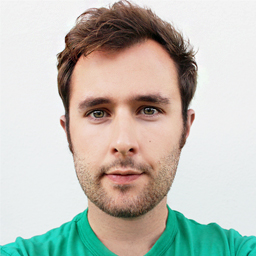
James Parsons
Digital marketing was already a highly competitive niche in 2018. It was a big challenge to market my company since many digital marketing agencies existed.
The best solution was to offer business proposals to my existing connections at more affordable rates with excellent data-driven results. I hired experienced offshore writers and marketers to save me some money and invested in dependable project management software to boost collaboration and increase productivity.
I created a website for my digital marketing agency and marketed my content marketing services across different online platforms. These steps tremendously improved the company’s online presence, gaining decent traffic for the first year and overwhelming content orders the years after that. More client referrals came in because of the soaring 700% increase in our average clients’ conversion rate in 2020.

William Cohen
One of the issues I had to deal with regularly was criticism. It could be about business concepts, small biz decision-making mistakes, or even launching a firm in the first place.
My business was continuously reminded about the different ways it may fail. People would be jealous of and intimidated by me, so these critics would get personal sometimes.
It’s also quite challenging for any new firm to acquire customers, especially if the company has a limited marketing budget. This concern was always on my mind, and the fact that consumers want to stick with well-known brands made it more difficult for me to advertise.

Tim Absalikov
Being a digital marketing agency, we did not vividly sense the negative effect of the pandemic. We have a mixed staff – both onsite and remote employees – so, we did not have to significantly change the mode of the work. At least, the effect of the changes was not painful for us as we didn’t have to adapt to changing market conditions. We were already practicing remote working, at least part of our staff.

Gian Moore
I’m a single mother. So, Building a business while my daughter was growing up was a huge task for me.

Emily Cooper
Hi Jed,
I’m Emily, the founder of Oliver Wicks, a luxury Italian menswear brand with an online presence.
Being a business leader requires a lot of social responsibility and accountability. There will always be challenges and setbacks present. The only thing that is within your control is your mindset and attitude towards things.
I value integrity and resilience the most in running my business. Enjoy the journey ahead and use the difficult times as fuel to perform better. It’s totally fine to fall down sometimes. The important part is getting back on the saddle and learning from your mistakes.
The first few years of establishing the business are usually the hardest. You are finding your footing, and grappling with growing pains at the same time. It really helps to center on your “why” in venturing into your business, as well as having the right team in place. Never be afraid to ask for help, and always give credit where credit is due.
I hope you find these inputs helpful. I will be happy to elaborate more on the topic, should you need more information.
Warm Regards,

Michael Dean
One of the main difficulties I’ve faced while being an entrepreneur is keeping up-to-date on current marketing trends. I never realized the absolute importance of marketing and SEO strategies until I started my own business.
You can have a fantastic idea, but without good marketing tactics, building an audience for that idea is next to impossible. Successful marketing requires an understanding of your brand, and solidifying your brand at the beginning of your business journey can often be challenging.
As someone who is not naturally savvy with social media, I have had to really put in effort and research into understanding how to use it as a business tool. Social media is one of the most accessible and valuable marketing tools out there. If you’re not prioritizing social media and digital marketing for your business, you are missing out on tons of engagement.

Becky Brown
I have 20+ years of experience in business, but becoming a CEO took more effort than I could ever imagine. My entrepreneurship journey began remotely when I took control of ShoppingKim, and I had to put in a lot of effort to make it all work.
The initial difficulty was learning how to navigate the online space, getting acquainted with the technology, and learning how to utilize it to grow my business. I had to learn a lot about website development, content creation, e-commerce, and digital marketing.
Managing a remote team was another difficult issue to resolve because I had to learn how to rally my employees to do their best work so that my business can grow.
All things considered, it took a lot of time and effort to learn and understand how everything works in order to make the best decisions as a CEO. Every CEO has to learn the inner workings of their business, but there’s also the need to acquire people and leadership skills to succeed.

Sherry Morgan
The hardest challenge I faced in my road to becoming a business owner and CEO is actually starting the journey. I had a lot of self-doubts and I always thought that maybe I shouldn’t start since I’m sure that there are always people better than me out there.
I got stuck in the planning stage for a long time, always visualizing what I want to happen but not taking any action towards it. Eventually, I decided not to pursue my ideas anymore but then my closest friends talked some sense into me.
They reminded me about the problems I want to solve and why I wanted to start my business in the first place. They also gave me a lot of advice and support and made me feel that I can do anything that I put my mind to.
There may be better people out there, but what’s important is looking at my own progress and aiming to be better than who I was yesterday. This motivated me to finally start and now whatever challenge I face in my business, I’m now brave to face it.
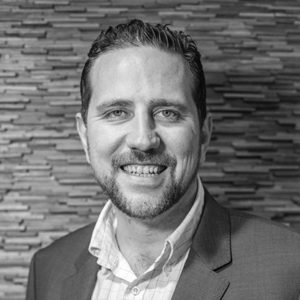
Stephen Keighery
One difficulty I faced on my entrepreneurial journey was keeping my head out of the competition.
Aside from the struggle to stay competitive in the marketplace, you also have to be aware and not get lost in the competition, which may influence how you conduct your business and offer your services.
It is challenging to stay level-headed, especially if you see your competitors earn more than you despite providing the same benefits as you do. You have to learn to extract yourself from that mindset, focus on the quality of services you offer, and establish a good rapport with your clients.

Devin Schumacher
The transition from being a technical consultant or contributor or employee to a full blown businessman providing payroll to others is a large step and it is not always a smooth road to walk on.
The growth pains of building a sustainable business in its infancy on top of a highly irregular business climate with covid-19 is a real challenge. I worked by developing grit and having systems, making small decisions on a daily basis that build into great results.
Here are the things that helped me:
Discipline through a Regimen or Workout
I was able to develop grit and resilience by training in the boxing ring for fitness. This really helped me show up for myself and my business rain or shine.
Center on a Natural Industry of Interest
You can zero in on so many materials when you are incredibly passionate about a subject. So the sucess comes more naturally on the things that feel and seem appealing to you.
Have a Why or Purpose
Ultimately, I thrive in serving clients by making them more digitally visible for revenue. I take pride in being close to the revenue line of my clients and that empowers me everyday.
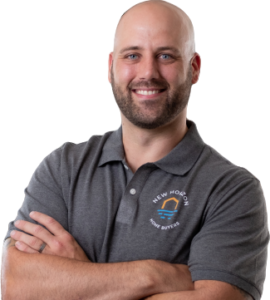
Erik Wright
Any new enterprise has a significant risk because there is always a fear of the unknown. The worry that I carried with me was leaving a well-established and stable job to pursue my dream of being an entrepreneur.
As there is no in-time or out-time while running your own business, it is hard to manage a job and a new business venture at the same time. For the business to succeed, 100 percent devotion is required.
It’s difficult and scary to leave a well-paying career, but if your instincts tell you that being an entrepreneur is the best fit for you, go for it. Do something that makes you happy at the end of the day, and if becoming an entrepreneur is your desire, work hard to make it a reality. That is exactly what I did.

Bryan Scudiere
When I think about my journey into entrepreneurship it almost happened by accident. My father lost his job in the ’08 crash which removed college from my option list, and I had to get a job in sales.
With no degree, the only type of sales job i could get was a commission-only D2D position – so I had to completely trust that I was capable of producing results. I spent 4.5years in the ups and downs of a commission based sales role some weeks making great money others, not so much. My first hurdle in my career was actually learning to manage cash flow, so I could survive a dry spell of sales.
This was where I learned budget based/profit first type of budgeting. In 2016 Once I opened the doors of my first franchise, I was off to the races and grew extremely fast in just 30 days, shooting up to a 30 person organization. I was young, audacious, and exceptionally loud haha I was running a sales floor in a Class A office building with incredibly thin walls next door to a 100+ year old Law Firm.
The music blaring and sales reps on the phone trying to close appointments made the owner of the building quite upset. He stormed in, and in front of my entire sales team screamed, smashed my speaker, and proceeded to aggressively kick everybody out.
So about 4 weeks into opening my first business I was banned from ever coming back into that office building [to this day] and had to find another location on the fly, while saving as many reps from quitting as possible. I managed to hold onto 12, find a cheaper bigger office space, and still put up over 300,000 in sales in the next 90 days and over a million the following year.
Garnering me the #1 franchise spot in the company for new business created in 2017. Just one of the many wild stories from owning a small business. Hope this is inspiring and helps people who are on the verge of quitting, I know i sure was back in 2016.

Kathleen Steffey
The difficulties faced on my journey to become an entrepreneur/CEO shaped me into the successful business owner that I am today.
When 9/11 happened, I was working as an ex-pat overseas in the Netherlands and I was part of a reduction in force for the European operation. All of a sudden, I found myself unemployed and so far from home during a tumultuous period for our nation.
This was a very pivotal moment for me to stop and reflect on myself, what I want for my future and quality of life while growing my career, similar to the behaviors and decision-making that you see in our current “Great Recession”. This is when I really began to ask myself “What do I want to do?”
I took that hardship and evaluated my life. This hardship gave me a wound to look back on but also to look ahead to new beginnings. Without the events that struck the nation that day and the immediate impact it had on the world and my career, I wouldn’t have had the fortitude or even moment to reflect on what I could make of myself.
I am so glad that I took the entrepreneur road (less traveled) instead of getting back into the corporate rat race. Here I am today celebrating 20 years in business!

Paul Sherman
The key challenge that I faced in my journey to the top was growing my network. The higher you go, the more you run into groups of people that are closed off to newcomers and like things the way they are. They’ve climbed up the ladder and pulled it away from under them, so to speak.
Breaking into such groups and thus moving my career forward required me to grow my network, but it was a vicious cycle. I couldn’t grow my network because these people often didn’t welcome newcomers, but I couldn’t break into these groups because my network was so small. The solution for me was pure luck. I met someone, who I consider to be a mentor, who vouched for me and helped me break into these networks of very high-achieving experts in the field.
Once I had my first break, it was, ironically, a virtuous cycle of my network growing, being accepted into more business professionals groups, my network growing even further, and so on.
As the saying goes, your network truly is your net worth.

Dragos Badea
A little over ten years ago I was your standard software engineer working at a design agency when I had the bright idea that it would be great to be able to digitize offices – really make it so that every aspect of the office was interconnected via software rather than all of the random clunky systems and paper-based processes that dominated the office at the time.
A good place to start, I reasoned, was a digital meeting room booking tool. As luck would have it, the concept caught on and here we are in 2022 with a rapidly growing hybrid workforce management solution business that’s been ranked as an industry leader by G2.
Naturally the way to get there was paved with it’s own fair share of difficulties. At the time everyone thought I was crazy. “Why would I pay to stick a tablet to the wall just to tell me whether the meeting room is busy?” is a phrase I heard more than once, which is not a great motivational help after you’ve taken your leap into entrepreneurship.
This wasn’t helped by the fact that I was, as I mentioned earlier, a software engineer. I knew next to nothing about the business side of running a company, but thankfully you really can learn just about anything online these days. I was putting together the tool, gaining our first clients and taking an online sales course on our way to bring in our first million of repeating yearly revenue.
What I took away from this is that not knowing how to do something or going against the way things are done are no real excuse for not giving your idea a try. Find the way to make it work and change the industry paradigm as you’re doing it.

Pati Recarte Iguaz
Patricia Recarte Iguaz is the founder and CEO of KADO Networks, a remote networking company. Pati created KADO during the pandemic as a way for businesses and individuals to grow meaningful relationships through a remote app you can download to your phone.
You can learn more about KADO by going to www.kadonetworks.com. Here’s what Pati has to say about some of the difficulties she’s faced on her journey to becoming an entrepreneur / CEO:
“On a personal level, preserving my mental health was an issue and still is, but to a lesser extent. Not managing my personal anxiety and stress levels ended up taking a toll on me. It’s key to find activities that allow your mind to drift away and escape the constant fires that need to be put out. It doesn’t necessarily have to be meditation. It can be anything from going for a run to boxing, or even a night out with friends.
Bringing on a co-founder can also help with the feelings of solitude and stress management. Entrepreneurship is a long and lonely road. Bringing in a co-founder helped me with sharing the weight and also helped with having different perspectives.
On the business side, setting a clear go-to-market strategy and getting our first clients was a real hustle! How can you convince people to use your app when no one else is using it? How can you convince a company to pay for your service when you have no referrals or reviews?
At the beginning, we did a lot of beta testing for free and interviews with potential clients, while also improving the app at the same time. To encourage usage, we’ve been offering it for free to individuals. Having some metrics is critical for SMBs and enterprises to move forward. Potential customers often ask about the number of users or need some name-dropping to be convinced. We are still at the very beginning of our story and this is still one of our key challenges, but we are getting better and improving every single day. “

Kunal Gandhi
Kunal Gandhi is the founder and CEO of EZPT, a new at-home fitness app. Kunal’s app tracks movement using your phone’s camera and corrects form using AI technology to prevent injury and encourage a safe workout experience. You can learn more about EZPT by visiting their website at www.ezpt.xyz.
Here’s what Kunal has to say about the personal difficulties he’s faced on his journey to becoming an entrepreneur and CEO:
“Every day is a new challenge. The fun part about building a startup is that we are constantly faced with obstacles that we must learn to jump over while also running at top speed. One of the biggest challenges that I faced as a founder was building product, talking to customers, and staying focused. As a young (& first-time) founder, there were tons of experienced founders and investors out there providing their advice on which direction to take the company. Our technology had a great problem – there were so many industries to apply the technology to.”
“Everything from sports, fitness, physical therapy, warehouses, truck drivers, day-to-day consumers and so many more. Learning about all of these industries and the market opportunity for each has really helped us evolve our roadmap. Focusing in on our core vision and brand values has allowed us to focus on building a movement health platform creating injury specific workouts for patients and providing data to care providers. We’ve also learned along the way to listen to customer feedback first, rather than jumping to the next industry. Talking to customers is a major key.”

Lauren Petrullo
I think the biggest difficulty I faced on becoming an entrepreneur and CEO was realizing that my unique set of skills in Facebook Ad has like one tenth of the skills that I would need to lead a team because I have to figure out project management, account management, reporting and every other course service that we offer.
We service lead generation and e-commerce clients which I can do all day long and Facebook ads. We extended our services to include marketing automation with emails and SMS, Google, Bing and Amazon PPC as well as the host of other services and having to mitigate the ability to know enough about services we offer to speak at it at a high level to build our client as well as to hold our team accountable.
The biggest difficulty was like to figure out how to manage a team, manage a remote team, manage a diverse remote team so that when my name, my face, my company is at the forefront, everything we do with every pack member equally represents the same level of quality my customers and clients came to know when they work with just me before I was a CEO.

Barbara Bolotte
The pandemic forced a majority of businesses to have to change the way in which they were doing something in order to adapt to their new environment.
At Clean Creations, we saw this as an opportunity to expand our services to help more individuals. During the height of the pandemic, fewer people were going to the grocery store or eating out. In response to this, we doubled down on keeping our staff safe and healthy which included COVID safety protocols like hand washing every hour on the hour.
We have an obligation to our community to keep them healthy and we wanted to maintain our service, especially for those who might not be comfortable leaving their homes to go to the grocery store. The pandemic has only fortified our mission of changing people’s lives with clean eating. We are grateful to be able to continue our mission during these times.

Renee Dominguez
I had struggled from very early on and it has been a journey to get where I’m at today. I was a high school dropout that never truly felt that I would have what it takes to be successful. As the years went on, I learned from many of my positions and I ended up going to private colleges earning multiple degrees. However, I continued struggling with imposter syndrome and feeling that I would never be educated or skilled enough to hold a high-ranking position.
Again, I underestimated myself. I have created glass ceilings for myself that I have also shattered. Now, I teach others to do the same. I went from a statistic to a bad-ass CEO and continue to prove to myself that I can do hard things!
Tapping into my intuition has allowed me to energetically attract the right type of clients. I grew up thinking I didn’t have any skills or talents. I seriously thought GOD missed me when it came to assigning these to babies. It took me nearly 40 years to realize I didn’t just have a skill or talent, I have a superpower. Now that I know this, I don’t doubt my decisions or waver on them. This superpower has guided me to create transformations not just for myself, but also for my clients who are now able to tap into their next levels of success, with ease.
My clients are women in Leadership who are ready to empower themselves and claim their seat at the table. I work in collaboration with you to develop your own unique leadership style in order to be heard, seen, and respected in the workplace. I have created strategic development tools to uncover your core values, true worth, and passions that will lead you to success and future endeavors. My clients are then excited and prepared for what lies ahead for them.

Joseph Gardzina
I’m Joseph, the CEO, and founder of ADAPT Programs which provides outpatient treatment services for substance abuse disorders. I’m a licensed US DOT Substance Abuse Professional along with a Licensed Chemical Dependency Counselor. Throughout my professional career, I have worked in several agencies and have worked as the Program Coordinator of their inpatient adolescent treatment program as well as the Director of Programs for Phoenix House in San Diego, CA. I have faced many difficulties in order to get to the position of a leader.
The trek up to leadership.
The journey to becoming a leader is much harder than it seems. Transitioning from a manager or employee or starting your own business is a completely new experience and that difficult part about that is no one ever teaches you how to become a real leader, it’s something that you only learn from experience. The journey towards leadership is one with obstacles at every step.
In my personal experience, when I was working as a manager and the next step was a promotion to a director, every day was a challenge. What differentiates a good leader from a bad one is how quickly you bounce back. Problems will be common in your role as a leader. How swiftly you deal with them as well as stay motivated throughout is how your become a good leader.
Dealing with the challenges.
The hardest part of becoming a CEO was taking the position of a leader. Deciding on goals for the entire team was something that was relatively new for me. I was used to defining goals for myself but forming goals for the entire organization was a challenge. Moreover, the added responsibility of so many people is a huge burden as well. I am responsible for the culture of the workplace and the execution of creating such a culture is a daunting task especially when you want to create a healthy and motivating environment.
The best way, in my opinion, to overcome difficulties on the way to the top is to find mentors and allies. Your support system is what will make or break you. Engage with your mentors who have ideally been in the same position as you and gather their insights on the process. Learning from their mistakes will prevent you from making your own.
One more thing I learnt is to not put off difficult decisions. As a leader you will have to make hard decisions every day. Surround yourself with people who are there for you in these hard times but also encourage you to do the right thing. The journey is not an easy one but staying focused is what works.
Lastly, one of the greatest challenge while on the journey to becoming a leader is learning the art of patience. It’s a removal of the ego and you cannot lash out on anyone if you are in a rut. You must always be calm and collected and embrace tough times as they come. A positive mindset and mindfulness goes a long way.

Will Cannon
How Do Leaders Cope with the Challenges
Leadership is what everyone is aiming for. Aside from the power that you are entitled to, it is also a door for more opportunities. However, it does not only take overnight to become one. A lot of successful leaders have endured the hardships that may come along with their careers.
There is no exact formula on how to be a leader. And, there is no precise number of levels of work needed for leadership. Some leaders have to spend a lifetime to attain success. But there are explications to achieve the goal.
How do leaders cope with the challenges?
1. Face conflict positively
2. Always stay calm in every situation
3. Look for opportunities
4. Reach out for help when needed
5. Be proactive and creative
6. Make sure to have a personal time
7. Leaders possess humility. They always remain humble even if they are on top. This characteristic keeps them in position.

Adit Jain
As you progress through your entrepreneurial journey, the kind of challenges that you face keep changing. For example, right now our biggest challenge is how to scale the business to $100M in terms of revenue. But for us, we were hardcore techies, so learning sales as just a three-person team, without the money to hire a team was the first challenge we faced.
During those early days, it was about product-market fit, and after that, it was about hiring the best people to build the best solution. That said, hiring the best is a constant challenge throughout a business’s journey.
Now, coming to overcoming these challenges. As I mentioned earlier, we were hardcore techies, and sales were something we had to learn from scratch. But we gradually learned. We understood how to sell to investors and customers alike. To add to that, we were dealing with the fear of “What if someone says no?” But over time, we’ve learned that you have to be comfortable in your skin because 99 out of the 100 times you hear a no. The day you get that lodged; you improve.
That’s one, now coming to the challenge of product-market fit. Product-market fit tells you whether you should start scaling or not, and it is critical because it tells you whether or not your business idea will be a breakout success.
So, we decided to go back to our customers to understand their needs and figure out how we could effectively solve their problems. It is important for entrepreneurs to go back to their customers and understand their requirements. As soon as you see repeatability in your customers, you know it is a fit.

Jonathan George
At the age of 26, I was named the Grand Champion Winner on Ed McMahon’s “Next Big Star”. It was the highlight of my career and my dreams were coming true as a brand-new record deal slid across the table… and then they discovered I was gay. I was left with no deal, no direction, and my dreams shattered.
My team tried to get me married, they tried to change my music, they tried to change everything about me. All I heard was…“You’re. Not. Good. Enough.”
You see, I had already spent a lifetime of being relentlessly bullied for not being a sports kid. Also, as the son of a preacher, I was told that I could never fulfill the purpose I knew I had in my life.
Again, “You’re not good enough.”
I didn’t know who I was or how to show up in the world. And no matter the accolades, I truly felt I wasn’t good enough.
That’s when I said “no more” and vowed to become the kind of coach I so badly needed in my own life. I needed someone who wasn’t going to CHANGE me… and make me different from who I was. Instead, I needed someone to help me ROCK the person I already was.
Since then, I’ve spent over two decades developing celebrity personal brands for entertainers, influencers, politicians, entrepreneurs, and professionals. As the CEO of Unleash Your Rockstar – Personal Branding Agency, they now call me The Human Hitmaker because my clients have over 150 million online followers.
My battle wounds gave me purpose and helped me impact the world around me.

Dan Voss
Thanks for putting this query out, hope you are doing well! It is true that every leader has faced difficulties and challenges, and continues to do so, that’s what a leadership role is about. As a leader, you are going to pave the way for your team, company, industry, or sector, and it comes with a whole lot of challenges.
One of the biggest I’ve faced in my years of working is ‘people management. Working together synergetically to achieve the best outcome, or to make sure everyone is productive and contributing to their fullest. Initially, it was thought that having the best players in the industry on your team would automatically mean success, but that’s not all that matters.
You need to be able to lead that team, navigate negative attitudes, bring direction, monitor outcomes among the other intangible things, like job satisfaction, culture, work-life balance, loyalty, etc. This for me was a big challenge and learning for me when I started out, but once you get a hang of it, it can be one of the biggest driving factors to your success.
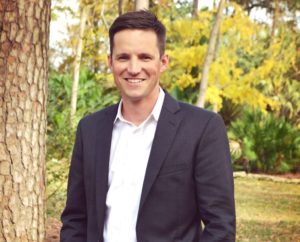
Corey Tyner
GETTING PAID DIFFERENTLY
Real estate’s financial and technical dynamics were the most challenging aspects when I started as a new agent. Because I was used to salary work, it was a financial challenge. After putting in a certain amount of labour, I was used to receiving a paycheck every month. I only ate what I killed in real estate.
WEARING MULTIPLE HATS
For the first time, I considered marketing budgets, marketing tactics, branding, and lead generation while also attempting to pay the bills. During my real estate schooling, I received training on performing specific tasks and the regulations that govern them. Still, they did not provide me with training on operating other areas of my business. To remain afloat, I quickly understood concepts like lead generation, how to follow up with leads, and organizational procedures.
NO OFF-HOURS
Off-hours work is one of the most challenging aspects of the real estate market. My working hours are opposed to those of my friends and family who work the regular 9-to-5 job. People who purchase and sell houses work full-time throughout the week and are only accessible in the evenings or on weekends. This entails working throughout your friend’s and family’s vacations. Knowing that you are required somewhere else while others enjoy a weekend BBQ can be depressing.
WORKING ALL THE TIME
As a real estate agent, I’m in charge of establishing my business. I have absolute control over my business, which means I can make or break it based on my efforts. There’s always more work that has to be done. This leads to a desire to work as hard as possible and a sense of slacking off when attempting to rest.

Keron Howe
I am passionate about helping people and also love real estate. A friend bought me Rich Dad Poor Dad by Robert Kiyosaki. The book made me focus on the idea of building wealth and freedom through real estate, and ultimately led me to co-founding Property Nation in 2011.
The journey has been incredibly rewarding, and I really appreciate that I can help people who are facing financial difficulties. Admittedly, at the start of the business, I had a very steep learning curve and faced many challenges.
Initially, I relied heavily on my business experience, research, and instinct. Real estate investment encompasses a lot of different aspects. Understanding renovations, repairs, and building a list of fair and reliable contracts were some points I needed to learn fast.
Seeking a mentor helped me meet those challenges. I learned it is unnecessary to reinvent the wheel, so to speak. Finding the right mentor for each stage of my journey, to learn from their knowledge and experience, lowered the learning curve whilst motivating me to succeed.
Finding a mentor can be a challenge, but by networking within in the industry and expanding your personal circle, it is possible to find your perfect match.

Sophie Chiche
The greatest difficulty I faced as an entrepreneur is, ironically, also my greatest strength The fact is, when you’re running a company or starting a new business venture, you have to devote virtually all of your time to it.
You have to eat, sleep, and breathe your business; to truly be successful requires an almost 24/7 commitment. But despite the never-ending dedication that your business requires, you still need to find time for yourself – some time to get away, to forget about the business or venture for a bit. Most people can only do so for short snippets of time here and there, but even these tiny respites will help to recharge you and keep your mind and soul fresh.
Unfortunately, as I was getting my business established, I found myself unable to follow this advice. I was completely consumed with growing the business and “keeping my eye on the prize.” I did grow my business – quite well, in fact – but it took awhile for me to learn how to step back and occasionally relax, putting aside all work-related items to “smell the roses.” I’m sure I would have burned out if I hadn’t been able to adopt this mindset. Even if you give 99% of your time to your business, you’ve got to save at least 1% for yourself. That 1% can go a long way towards helping you maintain your sanity and your focus.

Erin LaCkore
1. Following through.
This is the most common challenge a leader faces in their life. They can get busy so much that they won’t even have time to look into every problem. So it is important that a leader creates a priority list that includes which task needs their most attention. This will help them to pay attention and overcome any challenge.
2. Dealing with stress and anxiety.
Having a busy life can cause stress and act as a hurdle in achieving your tasks. So it is important that you take out some time to meditate to deal with your stress and anxiety. When you have dealt with it, you can pay more attention and put all your focus on the work.

James Simmons
James Simmons is the founder and CEO of GameApart, a new online gaming platform. The platform connects users to loved ones via their favorite card game or board game by using virtual software such as Zoom, Teams or FaceTime.
Simmons created GameApart during the COVID-19 pandemic as a way for loved ones to connect virtually. You can learn more about GameApart by going to www.gameapart.com. Here’s what James has to say about some of the difficulties he’s faced on his journey to becoming an entrepreneur / CEO.
“The biggest challenge was learning when to take risks. As a senior leader (but NOT the CEO) you can suggest or advise tough courses of action, but the ultimate decision on whether to bet the deal, the lawsuit, or the company fell on someone else, and there was always a little bit of comfort in the fact that someone else was making the final call on the really big issues (and also a bit of frustration!).
When it’s all on you, the fear of making the wrong choice can be crippling or, conversely, actually making the wrong choice without due consideration can be catastrophic; learning to handle this and find the right balance of caution and boldness (still working on it!) has been a huge part of my personal founder/CEO journey!”

Shawn Plummer
In my journey to becoming a CEO, I struggled with transitioning from a corporate environment where I had a lot of resources and people to support my work to starting my own business where I had to do everything myself.
There were a lot of things I took for granted and having to get everything in place on my own was difficult in the beginning. However, I’ve never looked back. I greatly value working for myself and investing in my own growth.

Stephan Baldwin
At the start of my CEO career, I dealt with internal conflicts regarding the conditions of existing care facilities. Many of these centers are well-decorated and promoted with excellent advertising, but they often lack financial support to sustain senior dependents. Some people might say that the negatives drove them to achieve successful businesses, but that disappointing reality nearly deterred my plans.
That experience taught me to leverage the power of research as a professional marketer. If we commit to learning about our competitors, we should also dedicate time towards recovering the facts about our industry of interest.
I realized that Assisted Living couldn’t be better or stand out in an uninformed environment. So I spent months performing a deep dive into senior care facilities, learning about each company’s history and retention rates. My choice to take a journalistic approach to healthcare marketing allowed me to uncover more than 19 000 care centers in the U.S. and Canada that I partner with proudly today.
Here’s the bottom line: If you want to be successful, you need to be willing to accept some hard truths and build on them. Entrepreneurs who shy away from the nitty-gritty work miss out on the foundations for thriving businesses.

Benjamin Rollins
The difficulties I faced in my journey in becoming an entrepreneur / CEO was learning to focus on other people instead of myself and not being secretive about the problem I was trying to solve.
I thought that if I talked about the problem I was trying to solve, people might steal my idea or take advantage of it. I was focusing only on myself and wondering why I wasn’t achieving the success I wanted.
After I got over myself and started focusing on helping others, and I started talking to others to get feedback on my idea, I was able to build a better business.

Froswa Booker-Drew
When I started my business, it was the result of dealing with a boss who was threatened. Instead of nurturing what I brought to the organization, my willingness to grow and learn, she saw it as a problem. This experience along with others taught me to value my team and create the space for them to unleash their talent. Insecurity is a trap that destroys your possibilities and the confidence of others.
I was already being asked to provide consulting. I walked out on faith believing I could grow my business. In a year, I exceeded what I made at my job through my business. I’ve had a lot of ups and downs, ebbs and flows. I initially struggled with understanding my value and worth which I cheated myself financially. I undervalued what I brought without accounting for my lived experience and education combined. When you aren’t clear on that, you’ll attract clients who also will not see your value.
Over the years, I’ve had my business in a full or part time capacity but I’ve never stopped. I’ve learned the importance of surrounding yourself with others who can offer support so you can focus on what you are good at—you can’t do everything all the time. As much as the grind is important and working hard to make your dreams a reality, you must take time to focus on building yourself.
You can’t grow stagnant and you must keep learning. Self-care both individually and in community is necessary. It’s important to take time to relax and rest. I remember pushing myself so hard that my health suffered. If you aren’t well, your business suffers. Learning to prioritize is paramount. Relationships are important and neglecting those that bring you life only hurts you.
I’ve learned so much because of the lessons I gained over the years. Your mistakes are lessons. Use them as a foundation to grow and bless others.
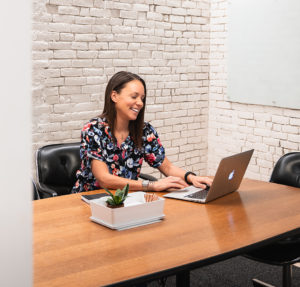
Lauren Carroll
In my industry of real estate, my biggest challenge would be where I operate, as potential clients often associate experience with age. As a young entrepreneur, it was a challenge to prove myself as an expert in my market.
Typically in this field, they say it takes seven years to get your business up and running. Of course, this is different for everyone. However, in Real Estate you do have to hustle and find different avenues in which you can generate revenue until you are off the ground. One takeaway from my experiences is that persistence and consistency are essential for new business owners.

Lauren Cohen
AN ANOMALY IN THE LEGAL AND REAL ESTATE WORLD!
Lauren Cohen is recognized as a premier International Legal Expert and Global Expansion Strategist. She operates several international companies focused on delivering full-service solutions for business owners.
She helps expand their global impact by facilitating the logistics of moving businesses and their owners across the country and around the globe. Her superpowers rest in anticipating challenges before they happen to ensure a painless and efficient transition and build sound, goal-oriented business strategies — legally, structurally, and physically. She takes away the worry and the sense of overwhelm away so her clients can stay in their lane, focus on building their business and achieve their version of the American Dream.
After her husband’s deportation on the return trip from their honeymoon, she was devastated. Although the marriage was not meant to be, the turn of events was traumatic and life-changing. She knew she had to make some changes and find a way to have a more significant impact on others to help them avoid suffering a similar plight – or worse. So, she turned to the ever-changing and dynamic world of immigration and international law to help others avoid a similar fate.
As a Canadian immigrant, Lauren received her U.S. green card in 2007 and started her own business in 2008. She gave birth to her son, Zevi, two years later, at the age of 43. Being a single working mother and entrepreneur was challenging. Lauren initially struggled in her career path, especially when balancing her two hectic work and home lives.
Lauren battled with ongoing pre-conceived notions about women in the business field and not having the right to have a “seat at the table” while developing her own. But, with the help and advice of trusted advisors and her determined and gutsy approach to life, Lauren managed to refocus her energy to become the successful business owner and single working mother she is today.
Since its founding, she has transformed her company, e-Council Inc., from a one-woman-operated organization to a small but thriving business. Her expertise as the founder of e-Council Inc. is in advising business owners, entrepreneurs, and investors on immigrating to the U.S. and helping them develop business plans based on visa processes and gaining access to foreign capital. She has since expanded her expertise into other areas of business and advisory services.
In 2017, Lauren founded “Find My Silver Lining,” a 501(c)(3) organization that inspires single mothers, working parents, and “mompreneurs” to focus on the bright side as they strive to lead fulfilling lives. Lauren offers strategic guidance and legal advice to simplify complex business matters. She aims to help her clients develop a business plan, find a work/life balance, and discover their business. She also helps others develop and grow their non-profit entities as they strive to expand their reach and impact.
Lauren since has developed her signature program, “How to Immigrate Through Real Estate,” which exemplifies her years of expertise in moving or investing into the U.S. and international markets. She also has sponsored numerous coaching programs dedicated to teaching women how to invest in real estate worldwide.
She has also created a program where she helps investors establish a path towards a visa through various business models, has partnered with multiple Canadian and American law firms, and maintains active law and real estate licenses. Her mastery lies in building top-tier “power teams” for each client based on her intrinsic understanding of the scope of professional expertise needed for each situation to protect assets, minimize risk with cross-border expansion, and ultimately achieve the client’s short- and long-term goals.
Although her list of accreditations is long, Lauren utilizes the specialized expertise of various vetted professional partners to guide each unique situation on a path to seamless success.
When faced with challenges, Lauren has persevered and thrived time and again. She has continued to create unparalleled international alliances through personal and professional obstacles to offer her clients borderless, quality, conscientious service.
Indeed, the economic and other worldwide challenges faced in 2020 saw Lauren overcome adversity and continue to expand and enhance relationships, develop new partnerships, and teach others how to access funding and strategies for business and investment opportunities. She equally applies her unwavering tenacity to represent her clients’ interests. Lauren’s satisfaction comes from the personal changes she can actualize for her clients through her turnkey suite of services.
In light of the current COVID19 crisis, Lauren pivoted her business once again. She now offers a wide range of services related to business continuity, the coordination of funding solutions, and pivoting strategies for business owners across North America from governmental and private resources.
Having experienced the challenges of immigrating first-hand, Lauren is passionate about helping others – citizens and immigrants alike – to successfully expand domestically and globally by protecting the soul of their businesses so they can invest, live, work, and play anywhere in the world.
How Leaders Overcome Difficulties on Their Way to the Top
Being a leader does not mean that you will consistently achieve the desired outcome. Being a leader means that when you don’t accomplish that goal, you have learned from your mistakes and, most importantly, improved from that moment onward.
All leaders in any professional field are going to encounter difficulties. Whether it is in the industry, you have chosen or your personal life, it is inevitable. There are many skills all leaders must be equipped with when confronting difficult situations. But I believe these to be the main ones:
The skill of Confidence:
If you don’t believe in yourself and your service, no one will do it for you. It is of the utmost importance that you be confident in what you are doing because confidence alone can open various opportunities for you even when undergoing a difficult situation. Don’t be afraid to take the next step in your career because it may be difficult. Do it, and do it with confidence!
The skill of Communication:
Nowadays, we communicate in so many ways – e-mail, text, phone – it’s hard to tell when nobody is communicating something anymore. When you do, it’s essential to know your audience, but most importantly, to be respectful. I cannot tell you how many times a person has been rude intentionally and even unintentionally. When confronting challenging situations, never respond out of anger. Take a second to cool down, and remember, you are always talking to another person. Be kind to one another, and don’t burn bridges unnecessarily.
The skill of Balance:
Having a work/life balance is crucial for mental health and emotional connection. Spending quality time with your family and friends (and your dog) is essential. Don’t ignore these emotional connections in your daily struggles because they will be your support system through thick and thin whenever you need them.
The skill of Prioritization:
You will have many instances where you are juggling numerous things at once, and perhaps all within the same deadline. Setting a list of tasks and events you prioritize and moving things around will save you from having a mental breakdown. Don’t be afraid to say, “no, I can’t meet with you on Thursday, but I can meet with you next Tuesday.” No one expects you to be available 24/7. You’re only human – don’t put that much pressure on yourself. But, be reliable and be punctual.
The list can go on and on about things leaders can do to overcome difficult situations on their way to the top, but these, I believe, are the most noteworthy.

Michelle Diamond
Starting my businesses was not hard because I got a lot of advice from others who were successful in my field. However, navigating and managing the ups and downs during the years was the challenging part.
The ups and downs did not always necessarily correlate with the economy or external factors. Sometimes it was partnerships that had to end and other times, pivoting to new territories, and expanding or ‘fine-tuning’ my target customers and customer base.
However, through it all, I understand that embracing and understanding change, along with updating my mindset to make room for it, has been the key to success.

Logan Mallory
One challenge that many people face when they become a business owner is learning how to guide their team to become great leaders. The best way to build leadership is to give people opportunities to lead. Provide guidelines and consult, but don’t take a directive approach all the time.
Of course, you need to manage when there are performance or attendance or handbook issues, but otherwise you should act like a coach. Let your team members test their limits, try new things, and fail without being punished.
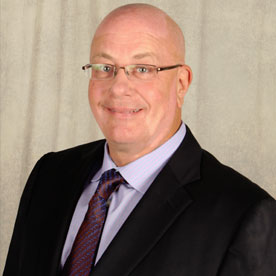
Mark Pierce
One way to overcome difficult times as a business leader is to improve your emotional intelligence. Emotional intelligence can help leaders approach challenges from a more nuanced perspective and use that nuance to find better ways to resolve the issue.
Emotional intelligence helps people not only better understand the emotions and feelings of others, but also control their own emotions and emotional responses to situations. This can help to defuse tense situations, find ways to connect with people to resolve challenges, and in general stay more in control of a situation.

Marla Cormier
I never wanted to be my own boss. I grew up watching my parents slave away to make their own business successful, and even after all of their hard work and dedication, after 13 years, they had to declare bankruptcy and close.
That entire experience made me think that owning a business was far more work than it was worth. My parents were honest, hardworking people so if they couldn’t make it work, what chance would I have? Many years later I met my husband, a serial entrepreneur who had started his first successful business at age 17. For him, owning his own business was the only option and he started encouraging me to carve out my own path.
At first I thought he was just being nice, you know, telling the new girlfriend how capable she is and taking an interest in her passions. But he never let up. In fact, after we got married he only encouraged me more. Then one day I realized that if I did start my own business, I’d be able to work on all of the things I love without all of the things I don’t. It took a few years but eventually I created my own training company.
I’d love to say that I was a huge success right out of the gate, but like most success stories, there came some huge failures first. My first failure was one of timing. I was selling escape room learning, highly engaging mobile escape room experiences that I would build and host on-site for clients in a training or conference room. It was the most fun training I’d ever developed and the results were remarkable with participants remembering and using what they’d learned months after they attended.
It as a great vehicle for participants to learn essential skills from time management to communication, and collaboration to listening. Unfortunately, I was ramping up right when COVID came on the scene. Within a week, my business model was irrelevant. Businesses were going into lock down and the idea of putting employees in a room together without social distancing was unthinkable. Almost overnight my fledgling business was on the verge of demise.
Since COVID was quickly becoming a long-term concern, I knew I had to make a change if I was going to keep my business going. I decided to abandon the escape room training model and instead, develop virtual training that allowed employees to learn from wherever they were. At a time when companies weren’t sure how to manage return to office, training that could be done virtually was a good solution. I expanded my content to include all the previous topics and many new ones in an effort to capture as many clients as possible.
That brings me to my second failure. I’m a people person so meeting new people and maintaining relationships comes easy to me. Everyone says that should make me good at sales. Well, it didn’t. I had no trouble making contacts and opening up conversations about my services and the benefits to my potential clients, but when it came down to talking money, I got nervous.
In those early days, I didn’t know my own worth and because of that, couldn’t speak to pricing with confidence. Instead of closing contracts in one conversation, it would take me three or more. Rather than being able to adjust offerings and pricing on the fly, I would need to regroup and go back with a new package and price for services. It was exhausting and ultimately had me leaving money on the table while creating a lot of extra stress.
I started to worry that business ownership wasn’t for me but I just wasn’t ready to give up. Afterall, I’d navigated COVID by changing up my offerings and switched from escape room learning to virtual delivery for various topics including leadership and customer service training. I had a small but loyal client base and I really wanted to believe that I was only steps away from figuring out the key element that would take me from surviving to successful.
And then, after a couple years of struggling against my own nature, I realized that I could be hugely successful if I changed my business model. What if I stopped trying to be all things to all people and just focused on my greatest passion, developing emerging leaders? That would eliminate all the packaging and repackaging of services which took up a lot of time and created a lot of anxiety. What if I put my pricing right on my website so I didn’t have to mix and match calculations on the fly? I would probably be able to close more deals more quickly and eliminate all of the anxiety around money.
So that’s what I did. I built a program for emerging leaders and outlined it on my website. And unlike other training companies, I posted my pricing right there for everyone to see. As soon as I made the shift, a giant weight was lifted and I was freed up to do what I’m great at, telling potential clients about my services. It’s amazing the impact this has had on my outlook and how it’s given me the confidence to sell now that price is essentially off the table (or, on the website as it were). I have better discussions with potential clients and close more contracts, most within one call, than I ever could have imagined.
The truth is, deep down I had always wanted to be my own boss. I grew up thinking that I’d take over my parent’s business so when it closed, I was devastated. I somehow took that experience and generalized it, deciding that I couldn’t run my own business. I had so much fear about business ownership that it held me back from dreaming big. That’s the biggest failure I had to overcome. I’d convinced myself that working for someone else, collecting titles, was the safer route.
Thankfully, I married a man who dreams big enough for both of us and eventually, with his support, and his constant push to help me see things differently, I decided to put fear aside and focus on my own happiness and fulfillment. Because I did, and because of my failures, I now have a business I’m proud of, that makes a difference in the lives of employees and in their abilities to grow their careers. I get to do what I love every single day.
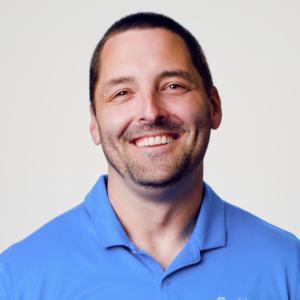
Peter Ord
I’ll focus on three major difficulties that I have faced during my journey as the CEO of GuideCX and those are:
1. Creating a new software category (Client Onboarding)
Those who have successfully created new software categories know that a great deal of patience and intuition is required to be successful. Because your product is so new and innovative, you don’t have prospects seeking you out yet. We’ve had to build a strong outbound selling motion to overcome this.
2. Staying no.1 in our new category
It’s one thing to create a category, but it’s another thing to lead it. We are grateful that competitors have popped up. They have helped us feel validated, spread awareness for the problem that GuideCX solves for, and migrate our sales motion into a competitive sales process versus an education-based sales process. These are all things that are needed in order to help our company and category grow.
3. Grow our team
I’m a big believer that the first 50 employees define the long term trajectory of your culture and brand. I’m thankful we were patient in the early days by not just hiring people that would be great to “work with” but holding out for people that are great to “be with” and “work with” as well.
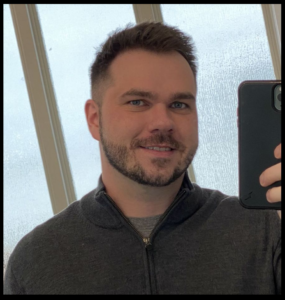
Shaun Connell
I built a small media company in 2014 that went from 0-to-1m per month in one year. I was only 25-years-old, so it was quite a ride. My greatest challenge, hands down, was learning how to build a reliable staff fast enough to keep up with growth.
Up until that point, I’d never hired more than one freelance writer at a time, and suddenly I needed writers, editors, a CTO, COO, etc.
I learned to integrate a simple strategy that worked very well for my situation: hire fast, fire fast. It was a brutal year, but one I’ll remember forever.
I sold that business a year later. I also still build small passion projects for fun, especially for investors. But I’m not looking to recreate anything on that scale.

Brianna Socci
As a startup founder, you face a lot of challenges during your journey. One of the things I’ve had to learn along the way is being able to bounce back and grow from the failures. Entrepreneurship is a long, bumpy road, and you can’t let the hard times dictate your attitude to advance. Move quickly, fail fast, learn from the experience and do it better the next time.


